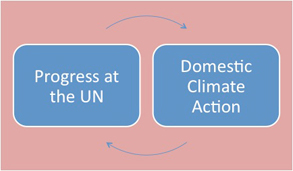What should we expect?
Posted on 04. Oct, 2010 by joannadafoe in Canada
Quick update - Canada has just made a significant announcement on climate financing. You can read the news article here, but expect an update tomorrow.
Hello fellow Canadians! Welcome to a week of blogs from the climate negotiations in Tianjin, China. For this week’s meeting I am remote blogging from Sweden but following the talks by live stream (and you can too). In my last blog I introduced Canada’s new lead negotiator Mr. Saint-Jacques. I have e-mailed but not yet corresponded with our new lead negotiator, fingers crossed that we get to connect digitally during his time in Tianjin.
On the eve of this week’s meeting, I am wondering what we should expect from the UNFCCC. Should the media, politicians, and civil society lower expectations to avoid yet another deflation in Cancun? The Globe and Mail recently accused Jim Prentice of lowering hopes for a climate deal in Cancun, but only because this article confers progress to mean a binding treaty.
Politicians and media are so stuck on the colossal binding treaty that we have misplaced focus on the vital stuff: what is Canada actually doing?
We can, and should, expect major announcements from Canada about efforts to reduce emissions, finance adaptation, and support REDD (Reducing Emissions from Deforestation and Forest Degradation). As we embark on this final meeting before Cancun, it would be wise to refocus attention on Canada’s domestic actions. I see this as important for accountability but also as a way to move beyond the idea that deadlock at the UN is the blame of a mythical other. It does matter what we expect from our Government in Tianjin and Cancun, we should expect a lot of concrete action.
As for negotiating text, there are some critical stepping stones that must be made by Cancun as summarized excellently by Jake Schmidt from NRDC.
MRV and Finance are Linchpins. Resolving some aspects of monitoring, reporting, and verification (MRV) and finance are critical to a successful outcome in Cancun.
Critical Implementing Actions Can be Agreed – Making progress on REDD, Technology, and Adaptation. In Copenhagen, countries were very close to agreeing on elements of the international approach to reducing emissions from deforestation and forest degradation (REDD), clean energy deployment, and adaptation. While there are aspects of these that are still controversial, it is possible to agree in Cancun on key elements that enable tangible action to materialize on these three critical issues.
I look forward to tracking Canada for you all in Tianjin and, for now, goodnight!









